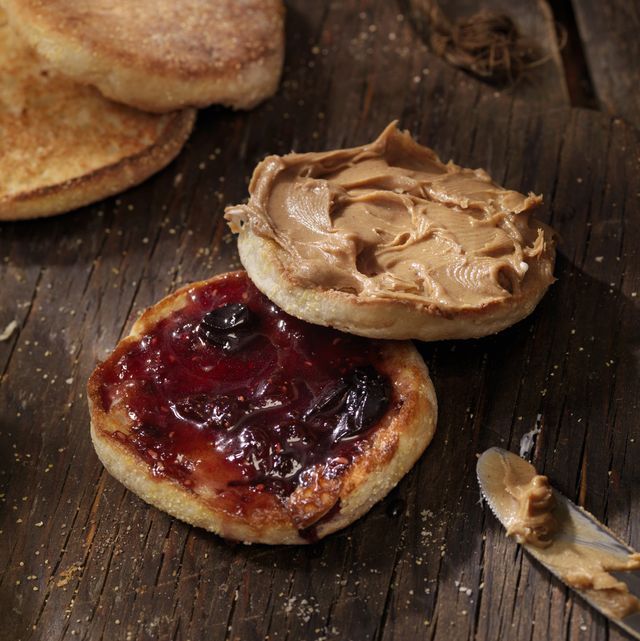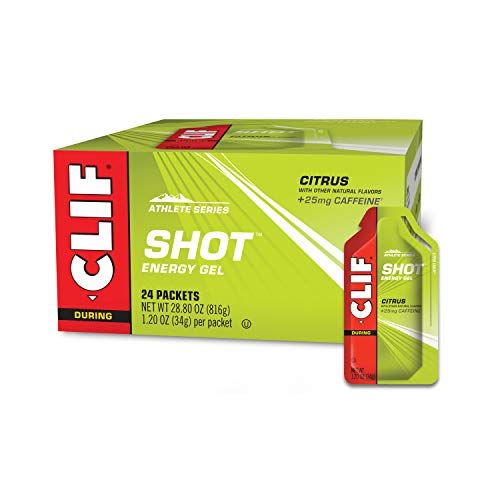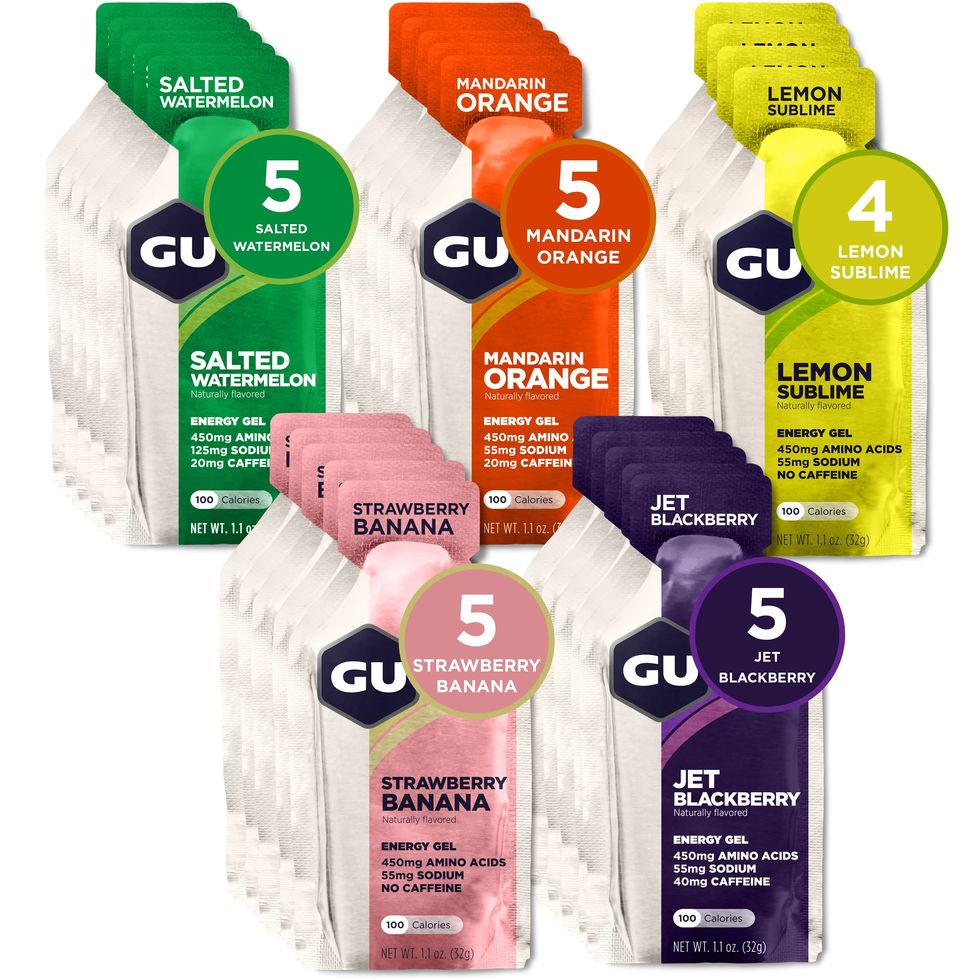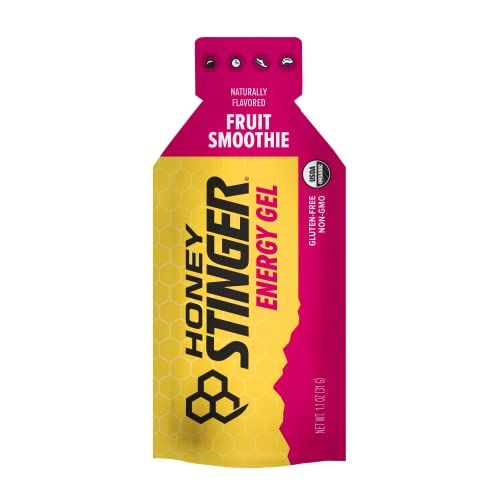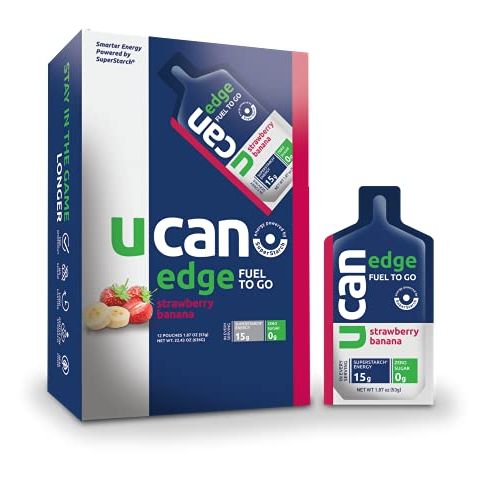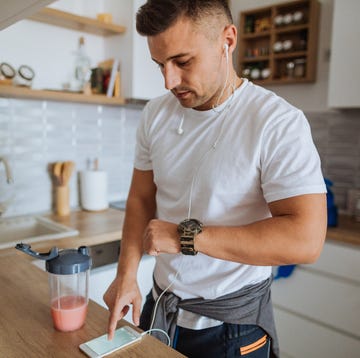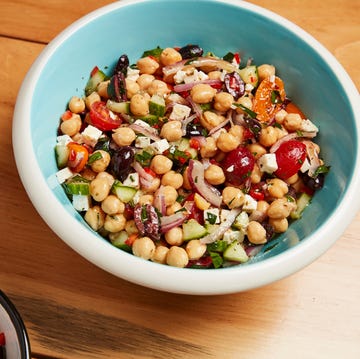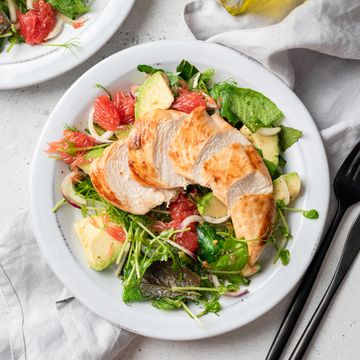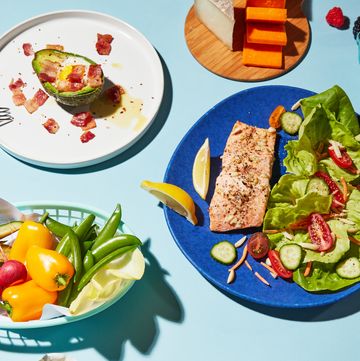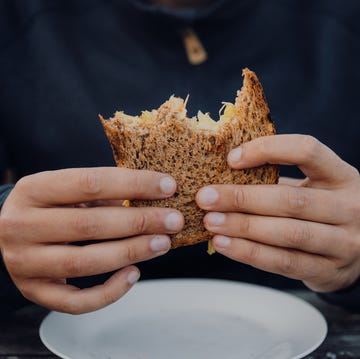An early morning run is a great way to start your day. But for those of us who can rise early enough to hit the trail, road, or treadmill, the question often pops up about what to eat before a morning run.
It seems like that question should have a simple answer, but unfortunately there’s not a one-size-fits-all approach to your prerun meal. You have to consider multiple factors when deciding what to eat before a morning run. Below, Pamela Nisevich Bede, M.S., a registered dietitian who specializes in sports nutrition and author of Fuel the Fire, outlines her recommendations for how to fuel prerun.
Do you need to eat before an early morning run?
First, consider the time and effort. For easy effort runs that last less than 60 minutes, you may not need to eat anything—your body has enough glycogen (its preferred fuel source) stored to power you through, but you should focus on refueling properly afterward.
Any run lasting longer than 60 minutes or performed at a vigorous effort may require some extra fuel to keep you going. That said, everyone is different and multiple factors influence this so if you find you’re hitting the wall on most runs around mile four or 45 minutes in, then you’ll need to adjust your fuel plan accordingly.
If you choose to eat before the run, in order to get that food in and digested, one option is to see if you can go to bed a half-hour earlier and then drag yourself out of bed thirty minutes earlier, which would give you time to digest a more substantial meal. But, of course sleep is precious and it can be so difficult to get in bed earlier, so here are some other ideas.
What should I eat before a short morning run?
The fuel needed to run a shorter run is quite different from the amount of fuel needed before running 12 or 13 miles.
If you’re hitting a wall during shorter runs (think: five to six miles), there are two ways you can fix this: You can either eat something small before the run, or add in some fuel when you are approximately three miles in, and then again a few miles later.
To fuel up before heading out, I recommend drinking eight ounces of a sports drink and eating half an energy bar. Most all sports nutrition-type items are designed to be easy to digest and are quickly absorbed into your system. This small snack should give you a noticeable energy boost.
If you want to roll out of bed and just go, make sure you eat a good meal the evening before and add in an energy gel or chew starting around mile three. Try to take in 30 to 60 calories (about half an energy gel or one to two energy chews) every two miles for the remainder of your run.
What should I eat before a morning long run?
For a longer run, don’t go out on an empty stomach and play “catch up” during the rest of the run. Instead, you’ll need to have some fuel in the tank before you set out. When trying to determine how much fuel to take in before a long run (longer than 75 minutes) begins, the general rule is to consume approximately 0.5 grams of carbohydrate for every pound of body weight and then multiply that number by the number of hours you have before you begin your run.
For example: Let’s say you weigh 180 pounds, and you have one hour before the run will begin.
180 lbs. x 0.5 = 90
90 x 1 hour = You need to eat 90 grams of carbs to fuel your run.
So what does 90 grams of easy-to-digest carbohydrate even look like? “Refined” carbs, such as white bread, white rice, rolled oats, muffins, and even fruits and jams have less fiber than less-processed options (such as whole grain or multi-grain bread), and thus can be digested and absorbed quicker. Here are a few examples:
- A white bagel (~50 to 60 grams of carbs) and 16 ounces of sports drink (~30 grams)
- An English muffin (~25 grams) topped with two tablespoons jam (~30 grams) and an energy gel chased with water (~25 grams)
- One cup of cooked rolled oats oatmeal (~30 grams) topped with one large banana (~30 grams) and one tablespoon of honey (~20 grams)
For some additional easy-to-digest carbs, you could add four ounces of fruit juice or half a large banana; either will supply you with approximately 15 more grams of easy-to-digest carbs. If you need less than 90 grams, you can simply halve or cut down the portion size of these foods.
Ultimately, carefully reading the labels of some of your favorite snacks and prerun foods will help you prepare. Then, test it each morning to figure out what works best for you and your stomach. Most runners (even the elites) stick to the one thing they find that works and rarely vary it, especially on race day.
The key is to choose meal items that are all easier to digest to put fuel in your tank. You’ll want to avoid foods that are high in fiber or fat, which could lead to GI distress. Remember to add in more fuel and fluids (i.e. gels, blocks, dried fruit, honey, etc.) while you are out on the road for a longer runs.
